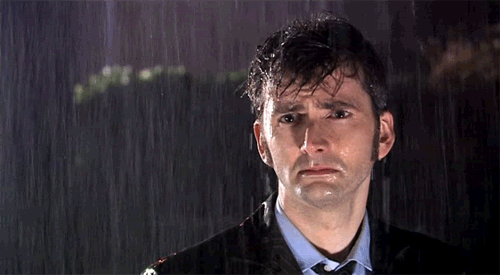Feeds are dead, long live feeds!

I bet you already know about the latest internet drama, but just in case, here's a quick recap: Google are going to shut down their feed reader, Google Reader, on July. Of course there is an online petition asking for Google to reconsider their decision already, a version of that Hitler video, and a Tumblr depicting the misery and despair of current Reader users. You're not sufficiently interesting unless you get your own fan-tumblr these days!
Despite the cries of the Google Reader fans, it all makes sense. I don't think Google started Reader moved by altruism--they did it to get better analytics on where the traffic was going when blogs were hot, hot, hot, which is probably the same reason why they acquired FeedBurner: to get readers and attention data in order to better target their ads. Suddenly their acquisition of DoubleClick and their out of the blue development of Google Plus makes even more sense. Everything is neatly tied together.
And on the Google Plus matter: it not only tracks which pages users are sharing, which I bet Google might use too in its search algorithm in order to evaluate relevancy, but it also allows users to post content. Content that is supposedly of higher quality than any given random page on the internet which might be spam driven, link-bait, whatever. And of course, Google gets to track everything. Who gets more page views, what profiles interest you more, what sort of pictures you look at. And how old you are, where you live, your gender, your personal and job connections... This is a dream made true for marketers. By force-feeding everyone+dog to use Google Plus and linking everything together, a point is reached in which RSS feeds are not relevant any more: low amounts of traffic being driven by Google Reader and generally low amounts of users.
Sure, there will always be niche users. Let me bet: mostly 30-somethings in the tech and related fields. But that audience is nothing compared to the numbers of "average users" that are buying an Android device lately and signing up for everything Google, just because their device asks them to. In addition, these 30-somethings often have AdBlock on their computers, and are savvy enough to not to click on any ad that slips out of the filter. Or in other words, they are loss makers for Google--and they are also the first to loudly complain when force-fed things such as real names on YouTube, G+ integration with GReader and etc.
And even most of the people in that age range don't read feeds any more, mostly because they were never serious about that. Back then people used feeds to keep up to date with random stuff, but that was because there wasn't anything comparable--other than compulsively checking your favourite websites everyday, or visiting one of the cool websites directories to find new funny things to browse. Nowadays you just need to go to your favourite social network to start getting a neverending stream of links and things to look at and "retweet", "share", "like", "repost", whatever. That's how casual browsing works now.
Which leaves us to wonder: so what about feeds? Are they going to become extinct? Will we consume everything through social websites in the future? To me, that line of thinking seems akin to asking whether we'll stop using e-mail and exchange messages only through social websites in the future. And the answer is "no" in both cases: we evidently are not using e-mail for casual things as much as we did back then when e-mail was the only medium that we had, but instead we use e-mail for what is best: asynchronous, fail resilient messaging. I think feeds are following a similar path, becoming the not-necessarily-super-up-to-date source of information, but offering longer content in an asynchronous decentralised structure.
Feed technology is mature and compatible enough to be used with many different technologies, both on the back and client side. There are libraries and validators so you're covered on every front; publishing feeds has an almost negligible cost, computationally speaking, and most content management systems already output their data in feed form by default. It is also open. Just like email! The only thing we need, as writers and publishers, is to keep publishing in feed form. Which evidently makes Google Plus a total no-no, as it doesn't output feeds. And if it does, it is damn well hidden, which makes it a double total of no-no-no-no! And as readers, keep using feed readers. If you use an open source reader, tell the developer you love the project, or maybe even contribute back: donate, submit code, help! Or pay for a reader. Show that you care.
PS This wasn't intended to be a post detailing alternatives to Google Reader, but just in case you're interested, I use Tiny Tiny RSS, and already wrote about it in 2011 when Google first started annoying Reader users.